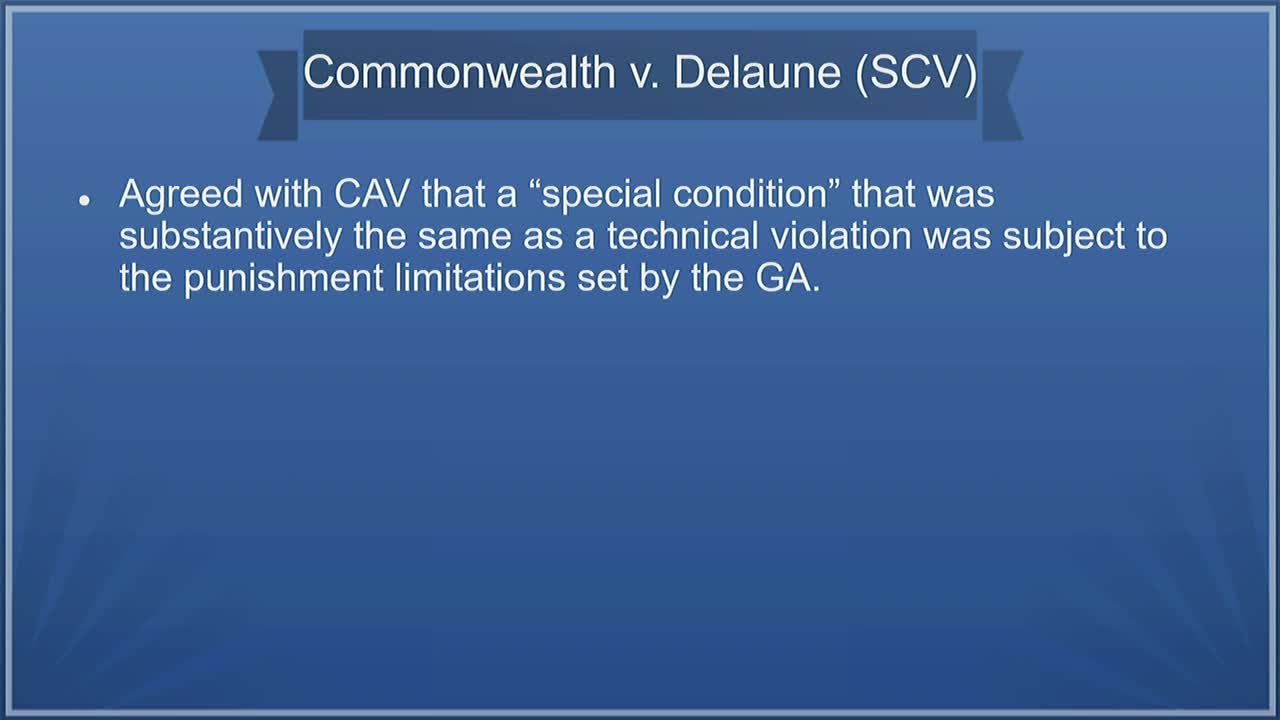Supreme Court clarifies probation statute interpretations in Delon and Thomas cases
March 25, 2024 | Criminal Sentencing Commission, Virginia, Boards and Commissions, Executive, Virginia

This article was created by AI summarizing key points discussed. AI makes mistakes, so for full details and context, please refer to the video of the full meeting. Please report any errors so we can fix them. Report an error »

In the hallowed halls of the Supreme Court building, a pivotal meeting unfolded on March 25, 2024, as the Criminal Sentencing Commission of Virginia convened to discuss significant updates regarding probation laws and their implications. The atmosphere was charged with anticipation as members delved into the nuances of recent court rulings and legislative actions that could reshape the landscape of criminal justice in the state.
At the heart of the discussions was a recent Supreme Court ruling that clarified how judges impose special conditions of probation. The court emphasized that when a condition aligns with a technical violation, the language governing technical violations takes precedence in determining punishment. This ruling, while straightforward, opened the door to broader interpretations of existing cases, particularly those influenced by the 2021 amendments to probation statutes.
Justice Chaffin, in his remarks, highlighted the remedial nature of the Probation Statute, asserting that any limitations on the court's ability to impose probation should be interpreted strictly. This perspective aims to uphold the statute's intent to provide alternatives to incarceration, a principle that may seem counterintuitive at first glance. The discussions also touched on specific cases, such as Diaz Eurecia and Thomas, which further illustrated the complexities of probation conditions and their enforcement.
The meeting also addressed the implications of recent legislative actions, including Governor Youngkin's veto of several bills aimed at reforming probation practices. These bills proposed significant changes, such as shortening probation periods based on educational achievements and consolidating multiple violation events into single proceedings. The veto raised questions about the practicality of managing probation across different jurisdictions, as well as the potential administrative burdens on probation officers and legal representatives.
As the meeting drew to a close, members reflected on the evolving nature of probation in Virginia. There was a palpable concern that judges might increasingly shy away from using probation as a sentencing option, given the complexities and limitations imposed by recent rulings and legislative changes. The discussions underscored the delicate balance between enforcing the law and ensuring that the rehabilitative goals of probation are met.
With the reconvene session on the horizon, the future of probation in Virginia remains uncertain. The commission's deliberations highlighted the need for ongoing dialogue and careful consideration of how best to navigate the intricate web of laws and regulations that govern the state's criminal justice system. As stakeholders await the outcomes of these discussions, the implications for defendants, judges, and probation officers alike are profound, signaling a critical juncture in the pursuit of justice and rehabilitation.
At the heart of the discussions was a recent Supreme Court ruling that clarified how judges impose special conditions of probation. The court emphasized that when a condition aligns with a technical violation, the language governing technical violations takes precedence in determining punishment. This ruling, while straightforward, opened the door to broader interpretations of existing cases, particularly those influenced by the 2021 amendments to probation statutes.
Justice Chaffin, in his remarks, highlighted the remedial nature of the Probation Statute, asserting that any limitations on the court's ability to impose probation should be interpreted strictly. This perspective aims to uphold the statute's intent to provide alternatives to incarceration, a principle that may seem counterintuitive at first glance. The discussions also touched on specific cases, such as Diaz Eurecia and Thomas, which further illustrated the complexities of probation conditions and their enforcement.
The meeting also addressed the implications of recent legislative actions, including Governor Youngkin's veto of several bills aimed at reforming probation practices. These bills proposed significant changes, such as shortening probation periods based on educational achievements and consolidating multiple violation events into single proceedings. The veto raised questions about the practicality of managing probation across different jurisdictions, as well as the potential administrative burdens on probation officers and legal representatives.
As the meeting drew to a close, members reflected on the evolving nature of probation in Virginia. There was a palpable concern that judges might increasingly shy away from using probation as a sentencing option, given the complexities and limitations imposed by recent rulings and legislative changes. The discussions underscored the delicate balance between enforcing the law and ensuring that the rehabilitative goals of probation are met.
With the reconvene session on the horizon, the future of probation in Virginia remains uncertain. The commission's deliberations highlighted the need for ongoing dialogue and careful consideration of how best to navigate the intricate web of laws and regulations that govern the state's criminal justice system. As stakeholders await the outcomes of these discussions, the implications for defendants, judges, and probation officers alike are profound, signaling a critical juncture in the pursuit of justice and rehabilitation.
View full meeting
This article is based on a recent meeting—watch the full video and explore the complete transcript for deeper insights into the discussion.
View full meeting
